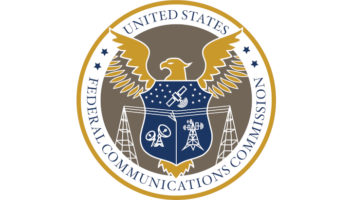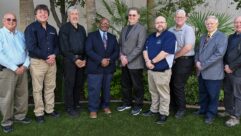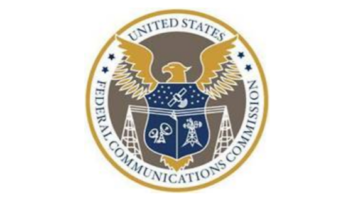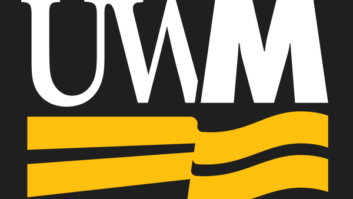 Life is feeling a bit less beautiful for a permit licensee in California who had its construction license revoked after building at an unauthorized site and operating without FCC approval.
Life is feeling a bit less beautiful for a permit licensee in California who had its construction license revoked after building at an unauthorized site and operating without FCC approval.
It was back in 2015 that Foundation for a Beautiful Life obtained a permit to construct a new a low-power FM station in Cupertino, Calif., with an antenna mounted on an existing electric distribution tower operated by the local gas and electric company. The bureau gave FBL until May 19, 2018, to complete construction on KQEK(LP). One day before the deadline, FBL certified that the facility had been constructed as authorized.
[Read: Felony Conviction Leads FCC to Consider Revoking Station License]
But several individuals submitted petitions stating that no LPFM communications equipment had been installed at the site. It turned out that the constructed facilities were actually located at a private residence in Saratoga, Calif., about 3.5 miles from the approved site. In addition, the facilities varied from the specifics approved in the permit, which called for using an existing 30-meter tower at a tower height above average terrain (HAAT) of 93 meters and with an effective radiated power (ERP) of 0.01 Watts. Instead it turned out that FBL installed a new 6.1-meter pole at the Saratoga site with a HAAT of 358.3 meters and an ERP of 0.001197 Watts.
FBL said that the discrepancy resulted from a miscommunication with its engineers. It then filed a modification application that sought to formally move the location to the Saratoga site. The Media Bureau denied this request, however, due to noncompliance with a second-adjacent channel distance separation rule.
FBL sought reconsideration of that decision; again the bureau demurred by dismissing both the license application and the modification petition. FBL compared its situation to another station, KM Radio of St. Johns, in which the commission waived rules specifying permit expiration, issued a monetary penalty and allowed the applicant to correct a construction error.
In the KM Radio case, however, a simple surveying error resulted in construction of a facility that was only about 900 feet away. That’s not the case with FBL, the bureau said, since FBL built its facilities 3.5 miles away — and with a different tower height and operating power than were approved by the bureau.
“The bureau found the [FBL case] to be more like cases in which permittees did not merely miscalculate but, rather, took affirmative steps to construct facilities not specified in an existing permit,” the commission said in its order. “Those cases had resulted in automatic permit forfeiture in accordance with governing commission rules, statute and case law.”
Even though FBL said that its programming would provide a critically needed resource for the Asian-American community, the permit was automatically forfeited on May 19, 2018, because the authorized facilities had not been built as specified. “The potential diversity benefits of FBL’s intended programming for Chinese-American listeners did not warrant a different outcome because all applicants, including those with diverse audiences, must comply equally with our rules.”
[Read: FCC Paperwork Confusion May Cost R.I. Broadcaster]
FBL continued to file reconsideration petitions and supplements, including a request for special temporary authority (STA) to broadcast pandemic-related information in Mandarin. One of those supplements revealed that the station went ahead and broadcast from the Saratoga site before receiving permission from the Media Bureau. FBL also asked the bureau to apply newly revised rules LPFM technical standards to its case and shared letters from the local community expressing support for the station’s operations.
But the commission sees broadcasting without authority as a significant error and the bureau ordered FBL off air on April 16, 2020, with a cease order and several reminders: the request for the STA is defective and FBL did not have the right to broadcast; FBL would have to show that it operated without authority on any future LPFM applications (effectively disqualifying FBL from LPFM service); and for the next 10 years, any principal of FBL would need to inform the bureau that it had been handed a cease order.
The station was taken off the air on April 20, 2020, while FBL continued to argue its case, asking the bureau to delay the cease order and contending that the order didn’t actually require FBL to stop broadcasting.
That’s when the Media Bureau sent the case to the commission for review. The commission responded by dismissing FBL’s supplements and denied its applications for review.
The commission said the Media Bureau was right to pull FBL’s license application after learning it constructed facilities at an unauthorized site. The commission also said that it would not apply newly revised LPFM rules to this case (since the commission stated in that rulemaking that the new rules would not apply to cases in which the agency had already issued a decision). The commission chastised FBL for operating before it had authority and dismissed FBL’s request that the commission delay implementation of the cease order. “FBL was operating as a pirate,” the commission said.
While the commission acknowledged FBL’s claims that the station would bring critical programming to the Chinese-American community and that pandemic-specific broadcasts would provide Mandarin speakers with important health information, “[these claims] do not outweigh our statutory responsibility in preventing unauthorized broadcasts,” the FCC said.
As a result, the commission dismissed and denied all applications for review, all supplements and the motion to stay — effectively cancelling FBL’s permit application and deleting the call sign of KQEK.











